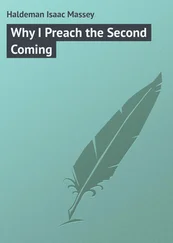Peter Orner
The Second Coming of Mavala Shikongo
We cannot speak with one voice, as we are scattered.
— HOSEA KUTAKO (1870–1970)
Boys stand with road-sore feet holding cardboard suitcases. They stand clustered, but not in a group. They’re not together. They don’t talk into the wind; they only wait on the brake lights that so rarely happen. Still, every new car or bakkie or combi or lorry is a new hope, rising and dying like a beating heart glowing and then spending itself on the pavement, only to live again when the next one comes. Out there in their best clothes, trying to get to the school deep in the veld. At certain moments in the early afternoon the tar road looks like it’s burning. A boy kneels and sniffs. There’s always one who thinks he can tell how much longer it will be by smelling the road.
“Stupid,” another says.
“Not stupid, science. It’s about air currents near the pavement’s surface. They change when —”
“Ai, go on.”
“Where? Go on where?”
They’re hungry, but you don’t want to pull out food, because no one would want to be caught chewing if the miracle of car does stop. Imagine a comfortable ride in a bucket seat with the radio playing. They keep their bread in their pockets. Boys have it worst. They are chosen last, after old mammies, mothers with babies, old men. Most of the time their only option is a lorry. Lorries don’t stop, they only slow down, just long enough for the boys to toss their bundles and leap, before the driver shifts gears and accelerates again. Klim op! Then they huddle against each other in the wind and wait for it to be over, as the lorry gains speed and begins to cross bridge after bridge over the dry rivers.
He was a big man and he prayed out loud in a small bed. Through the wall, his face in the mattress, and still we heard him.
Out of the deep I call
To Thee, O Lord, to Thee
Before Thy throne of grace I fall.
Be you merciful to me… Damn you, to me…
During the day he denounced God as residual colonialist propaganda. “Listen, if He was opium, I’d stuff him in a pipe and smoke Him.” Pohamba. Resident Catholic school blasphemer, atheist, revolutionary, provocateur, math teacher. Even he turned to a higher power when the long veld night closed us in. Who else could deliver him from such a place? A farm in the desert? And what kind of god would put a farm in the desert? Pohamba was a man out of options. All traditional and earthly means had failed. He’d sent countless letters to the Ministry of Education begging for a post in a town, any backwater dorp would do. Dear Comrade, I’ll even accept a position south of Windhoek in order to do my share for this budding democracy.
Every one of them went unanswered. He often conjured those letters, talked about them as if they were castaways washed up on some bureaucrat’s desk. And when he got going, a little Zorba in his veins, he’d describe the bureaucrat, Deputy Minister So-and-So. Meneer Deputy Minister Son of Somebody Important in the Movement! Some bastard who spent the war years in Europe while the rest of us sat here ja baasing P. W. Botha. He’d give his bureaucrat a smooth, freshly shaved face and a fat-cat corner office in the Sanlam Building. A wristwatch big as a Volkswagen. And a secretary, of course, in a chafing skirt. White. Make her a white secretary. And he’d imagine his letters, his babies, sitting stacked neat, unread, ignored. “Like to burn that office,” he’d say. “Watch Meneer Deputy Minister Son of Somebody Important melt. Secretary too. Both of them black as char in the morning.”
Nights were different. And some nights it wasn’t Jesus he’d beg to but his mother. These were the longest. It wasn’t that he kept me up when he talked to his mother. It was that I couldn’t hear him. Even with our walls made of envelope, I had to press a coffee cup to the wall to listen. Mama oh Mama. .
She was buried, he once said, behind a garage on a farm north of Otavi.
The hours drag on. Then the inevitable. Through the wall Pohamba moans low. The bedsprings noisy for a while before the death silence of small relief.
But there were, weren’t there, also afternoons when you could have almost called him happy? Pohamba on a rock outside our rooms, cooking bloodwurst, thick German plumpers he bought from the butcher Schmidsdorf in Karibib. Pohamba whistling. His tape player spewing that horrid Afrikaner disco folk. Tinny synthesized drumbeats accompanied by sexy panting.
Saturday languoring. Wind, sand, boredom, sweat, visions of sausages. Eating our only glory then. The rest of us loll in the sweaty shade while Pohamba forks bloodwurst. We lick our fingers, slowly. Pohamba moving in time. A big man but graceful. His feet plap the dust. The rocks beneath our heads get hotter. Sleep refuses. Pohamba bobs. He skids. He twirls, juts, swags. He wiggles a booty at us. In the pan, in the holy grease, our beloveds fatten and splurt.
Abrother from the diocese drove me out there from Windhoek. His name was Brother Hermanahildis. He was a silent man with a bald, sunburned head. The single thing he said to me in four hours was “I am not a Boer, I am pure Dutch. I was born in The Hague.” He drove like a lunatic. I watched the veld wing by, and the towns that were so far between. Brakwater, Okahandja, Wilhelmstal. Brother Hermanahildis seemed to be suffering from an excruciating toothache. At times he took both hands off the wheel and pulled on his face. I was relieved when we reached Karibib and he turned onto a gravel road heading south. Eventually, he let me off at a wind-battered tin sign — FARM GOAS — and told me to follow the road, that the mission was just beyond the second ridge. When you get there, Brother Hermanahildis said, go and see the Father directly.
Ta-ta.
With a suitcase in each hand, one backpack on my back, another on my stomach, I followed the road, a rock-strewn double-track across the veld. There were a number of ridges. I looked for one that might be considered a second one. The short rocky hills made it impossible to see what was ahead on the road, although in the distance I could see a cluster of smallish mountains rising. A few crooked, bony trees here and there. Strawlike grass grew like stubble up out of the gravel. Somehow I thought a purer desert might have been more comforting. Where were the perfect rippled dunes? Where was the startling arid beauty? These plants looked like they’d rather be dead. I listened to the crunch of my own feet as I shuffled up and over ridges. There was no second ridge. There would never be a second ridge.
*
An hour or so later, sweat-soaked, miserable, I stood, weighted and wobbly, and looked down on a place where the land swooped into a kind of valley, a flat stretch of sand and gravel. There was a group of low-slung buildings painted a loud, happy yellow. There was a hill with a tall white cross on top. Hallelujah! As best I could I bumbled down the road until I reached a cattle gate made from bedsprings lashed to a post. The gate was latched closed by a complicated twist of wire. As I struggled with the wire, a rotund man in a khaki suit moved slowly but inevitably down the road toward me, as if being towed by his own stomach. When he reached the other side of the gate he stopped. He faced me for a moment before he spoke much louder than he needed to. “Howdy.”
Читать дальше












